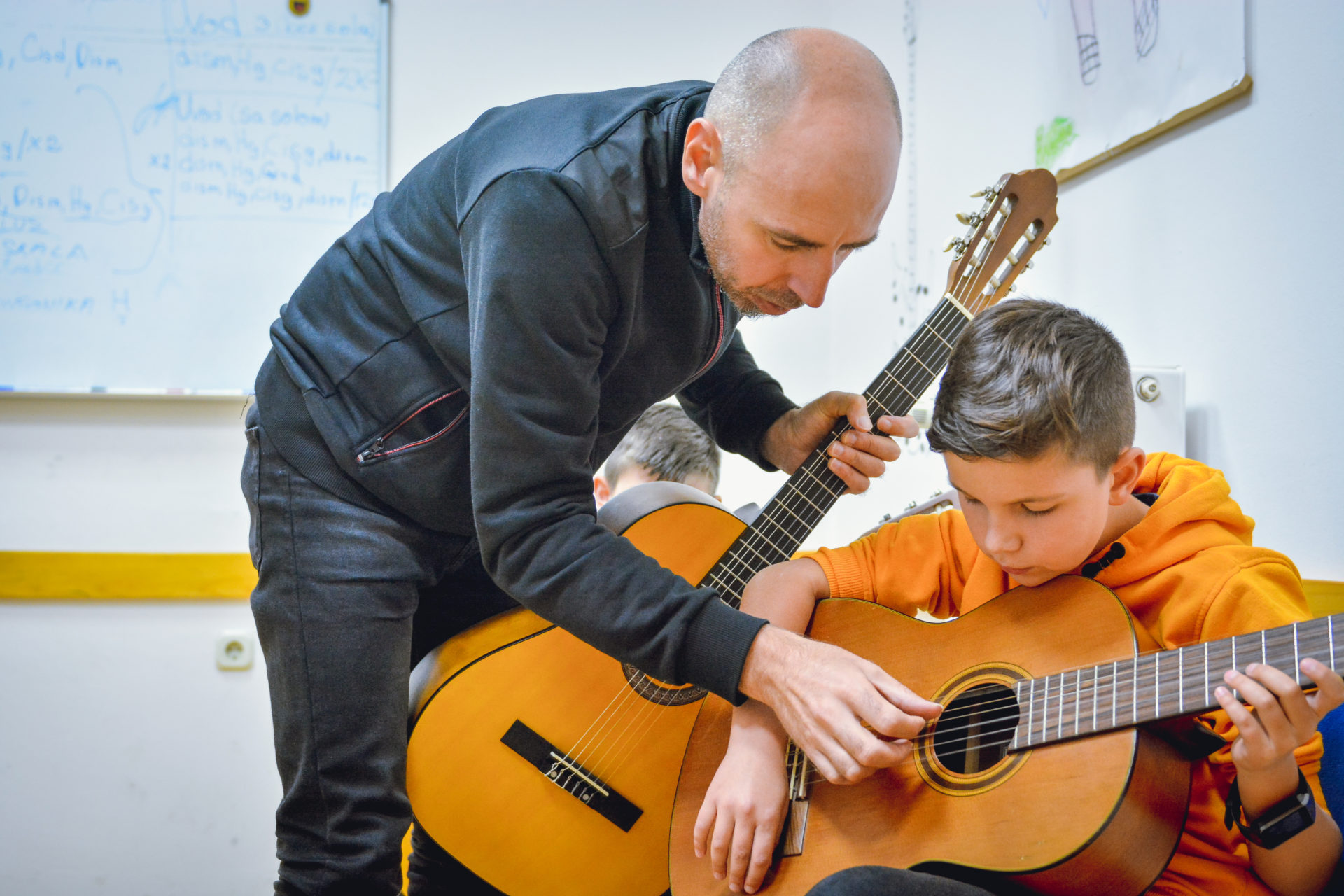
The Srebrenica association House of Good Tones has been fulfilling its mission for over a decade, believing in the idea that changes must be local, lasting, and sustainable. From the very beginning, their goal has been to connect young people from Srebrenica, Bratunac, Potočari, Milići, Konjević Polje, and Skelani, providing them with various skills through modern teaching methodologies. Although they started as a musical movement, today, young people within the association have the opportunity to explore and study other fields.
Ismar Porić, the president and director of the association, emphasizes that they started their work with modest expectations, with only a few hundred euros in their account. However, a cultural and artistic project soon evolved into an association that has been successfully operating since 2011.
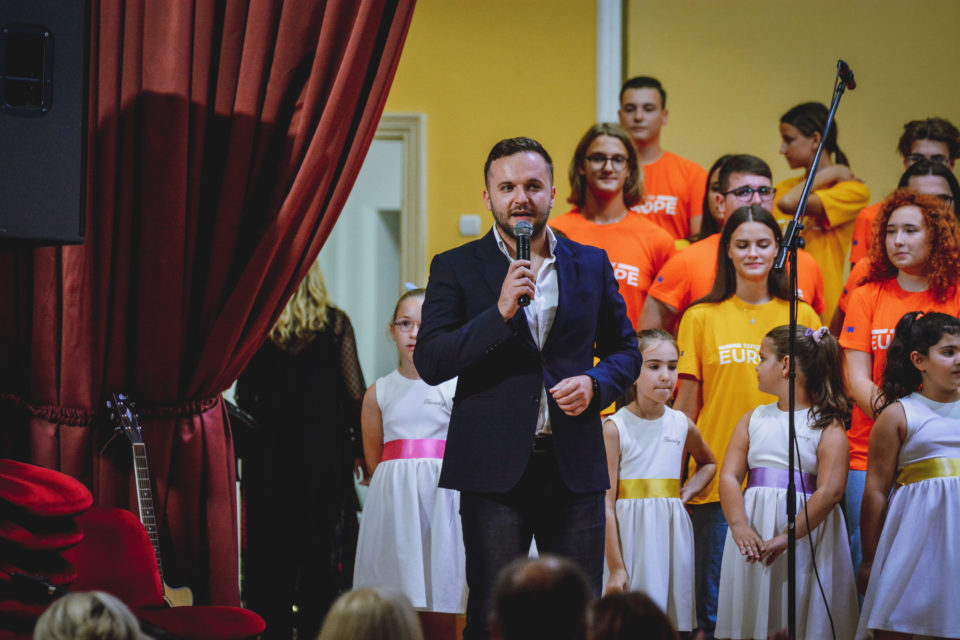
“So far, thousands of children have gone through our programs, significant talent exchanges have taken place in the region and throughout Europe. Our students have performed over a hundred concerts across Europe. We’ve had initiatives with various organizations and associations from Serbia, Croatia, Italy, Austria, Germany, and many other countries,” Porić explains with pride.
In the early days, when they first recognized the need to establish this association, they didn’t have the support they have today. Porić adds that through dedicated work and effort, they have managed to overcome challenges.
“We started hiring more people and gained the trust of various donors as well as parents, which was one of the most challenging aspects for us in the beginning. When we first came to Srebrenica to work on this project, we were one of a thousand different initiatives, and parents were understandably skeptical. However, after a few years, we built trust, which we consider the key to our success,” says the association’s director.
The alumni of the House of Good Tones are the best testament to the association’s impact on their student’s development, and Porić emphasizes that the most important thing is that the children have grown into good people.
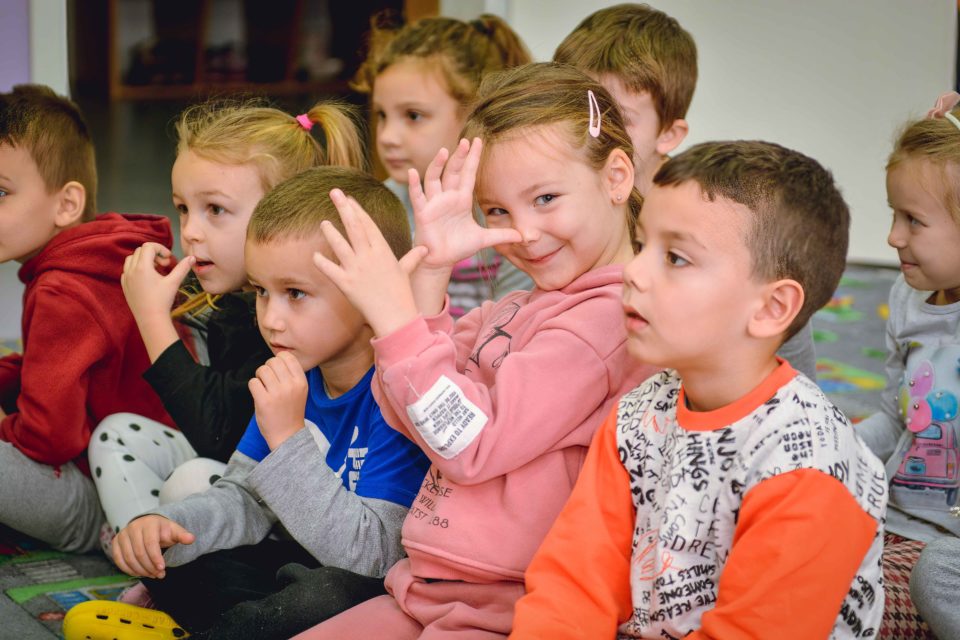
Listening to Young People’s Needs and Engaging in Dialogue
The House of Good Tones is led by a team of young people, and for Porić, their most crucial activities are going to the field and engaging in conversations with people about their problems. “We believe that working in the field is the most important because issues like these cannot be resolved by sitting in offices and writing reports that no one reads,” explains Porić.
They place considerable emphasis on listening to the needs of their students. Collaborating with numerous organizations and universities worldwide, they are able to adopt the most modern approaches to education and achieve positive results.
Children growing up in Srebrenica carry a particular historical burden, and through discussions about their needs, the House of Good Tones has realized that music can effectively connect young people from different ethnic groups.
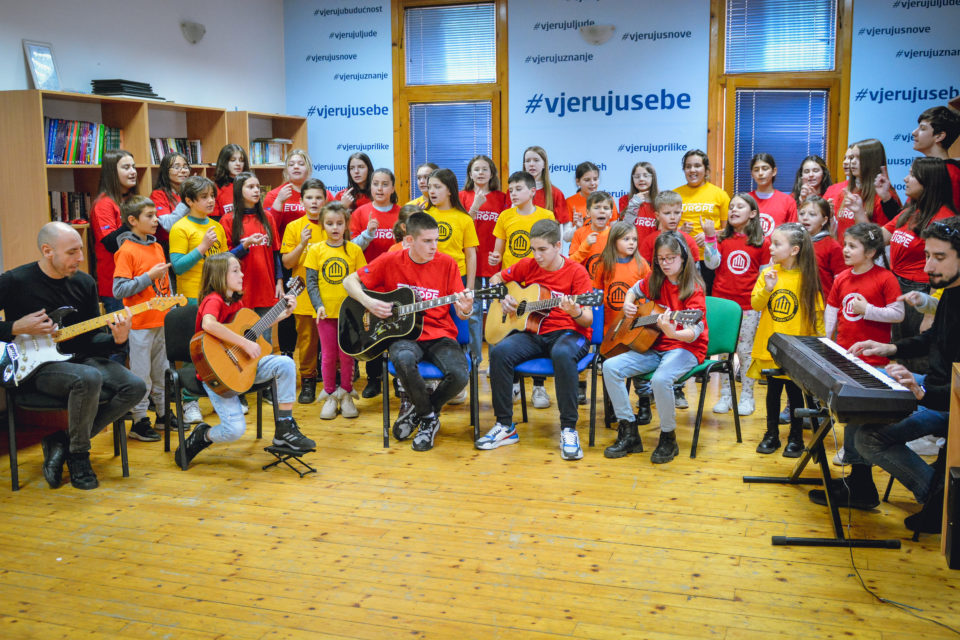
“Music is a fantastic tool for connection. We collaborate with many organizations in the Western Balkans, they come to visit us, and we go to them. The exchange of talents is crucial because they can learn a lot from each other. Our approach to our work is based on the idea that people connect best when they find a common problem because that’s when they’re most engaged, fastest, and most creative,” states Porić.
Porić explains that when dealing with sensitive topics, it’s important not to be confrontational and aggressive, especially when working with children.
“People are naturally different and have different affinities, but it’s also natural that we have to compromise in order to build bridges and provide young people with space for progress and a better future. People in the world are making rockets, and here we are still dealing with other things. I can proudly say that the nearly 150 concerts and countless trips we have organized are opening new perspectives for the youth,” said Porić.
Lack of Opportunities for Young People in Small Communities
The unemployment rate in Bosnia and Herzegovina is one of the country’s most pressing issues, with youth unemployment reaching nearly 40 percent according to the data from the national Statistical Agency. Some studies have indicated that a primary reason for the emigration of young people from Bosnia and Herzegovina is the inability to find employment.
In smaller communities, young people are further condemned to a lack of educational programs and content that might inspire them.
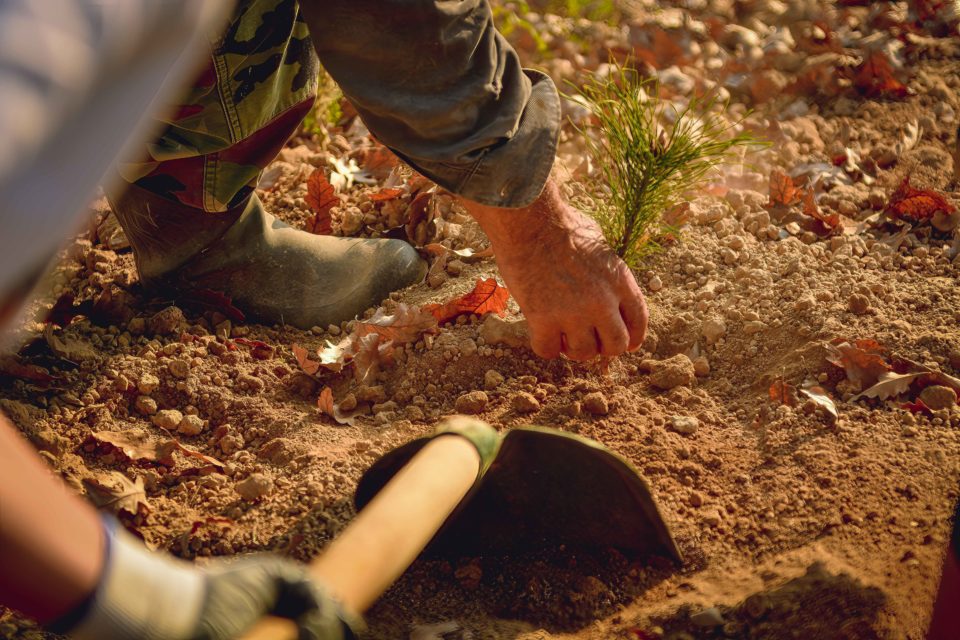
“Most programs are focused on big cities, and I think it’s extremely important to involve smaller communities as well. Statistical data shows that young people are more likely to leave smaller communities than larger ones. That’s precisely why I believe we’ve lasted so long in Srebrenica, as it’s a small community with limited opportunities, and the children appreciate us. We constantly tell them to use our facilities, to be here, to do their homework, to be creative, and that we will help with business ideas. We’re here for them. It’s important to stay, even in a small community, because, after all, home is where the heart is. We need to fight for it because wherever you go, it’s not all perfect,” explained Porić.
Porić says that the educational system in Bosnia and Herzegovina lags behind and is often boring, with children lacking the concentration they had before. A study in England showed that the average attention span of a young person is as long as watching a story on Instagram, which is usually seven seconds. If you don’t capture their attention during this period, young people typically continue searching for more interesting information.
“Therefore, we strive to have a different and modern approach to students so that they can more easily absorb knowledge. It’s different when you connect something to modern pop culture, which is familiar to them, so they listen more. For example, we incorporate elements of Harry Potter to achieve the desired results and help them understand the material,” said the association’s director.
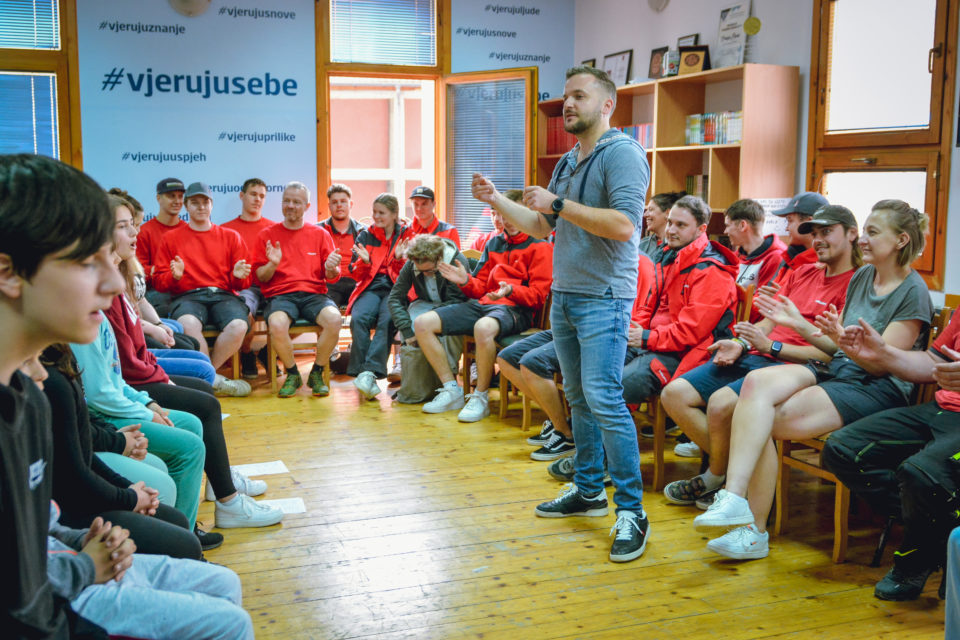
Diverse Educational Fields: Something for Everyone
Through various alternative and modern educational methods, the students of this association have the opportunity to refine skills in different fields. In addition to artistic content, the association offers instruction in a variety of educational areas.
“We teach them about other cultures and nations, critical thinking, and media literacy. Today’s world is challenging for young people, and in our association, we teach them to form their own opinions, express themselves, and advocate for their rights. Additionally, we want our students to connect with young people across the Western Balkans, gaining experiences that will help them in various aspects of life,” explained Porić.
The House of Good Tones has six different programs: music, educational workshops, community engagement, volunteering, healthy lifestyle, and literature. The association operates five days a week throughout the school year. Each year, they have between 300 and 400 participants coming from Srebrenica, Skelani, Potočari, Bratunac, Milići, and Konjević Polje.
“We have our own transportation line that brings the children to us. We strive for each child to visit us at least twice a week. In addition, we have a canteen where the children are provided with meals, and the project is entirely free in all aspects,” said Porić.
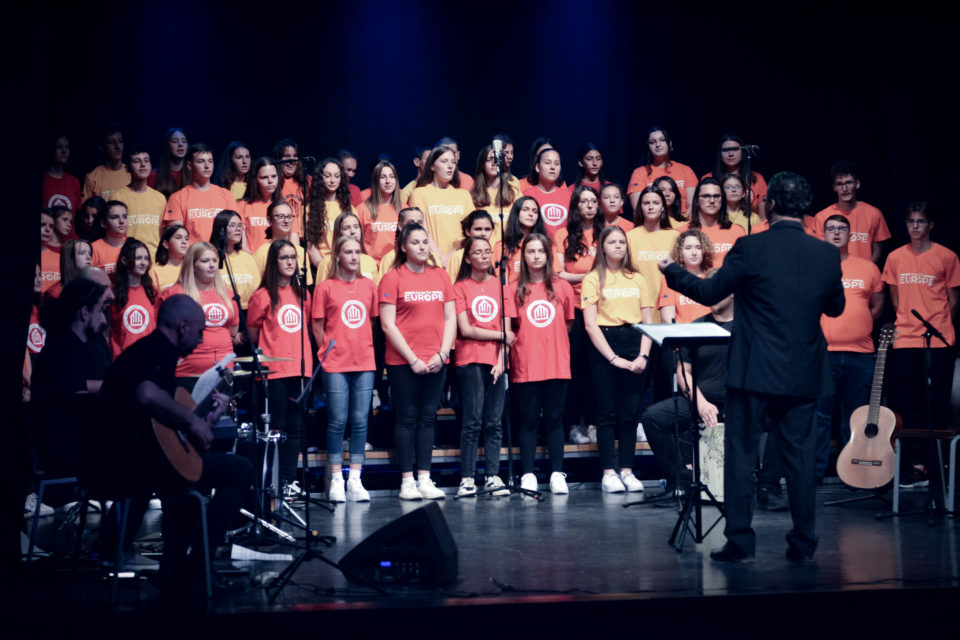
The association also has a branch in Prijedor, and they express the desire for the House of Good Tones to develop into a network of associations throughout Bosnia and Herzegovina, focusing on educating young people.
“We have our own way of working and an approach that can be transferred to others. There are many associations in Bosnia and Herzegovina doing great work, but there’s always a need for those who will educate young people in a non-invasive way and provide support in eliminating unnecessary material that children do not benefit from. We work tirelessly, and it’s important to us to shorten the path to success for our youth. Thousands of children have already gone through the House of Good Tones, and we’re very proud of that,” concluded Porić.






